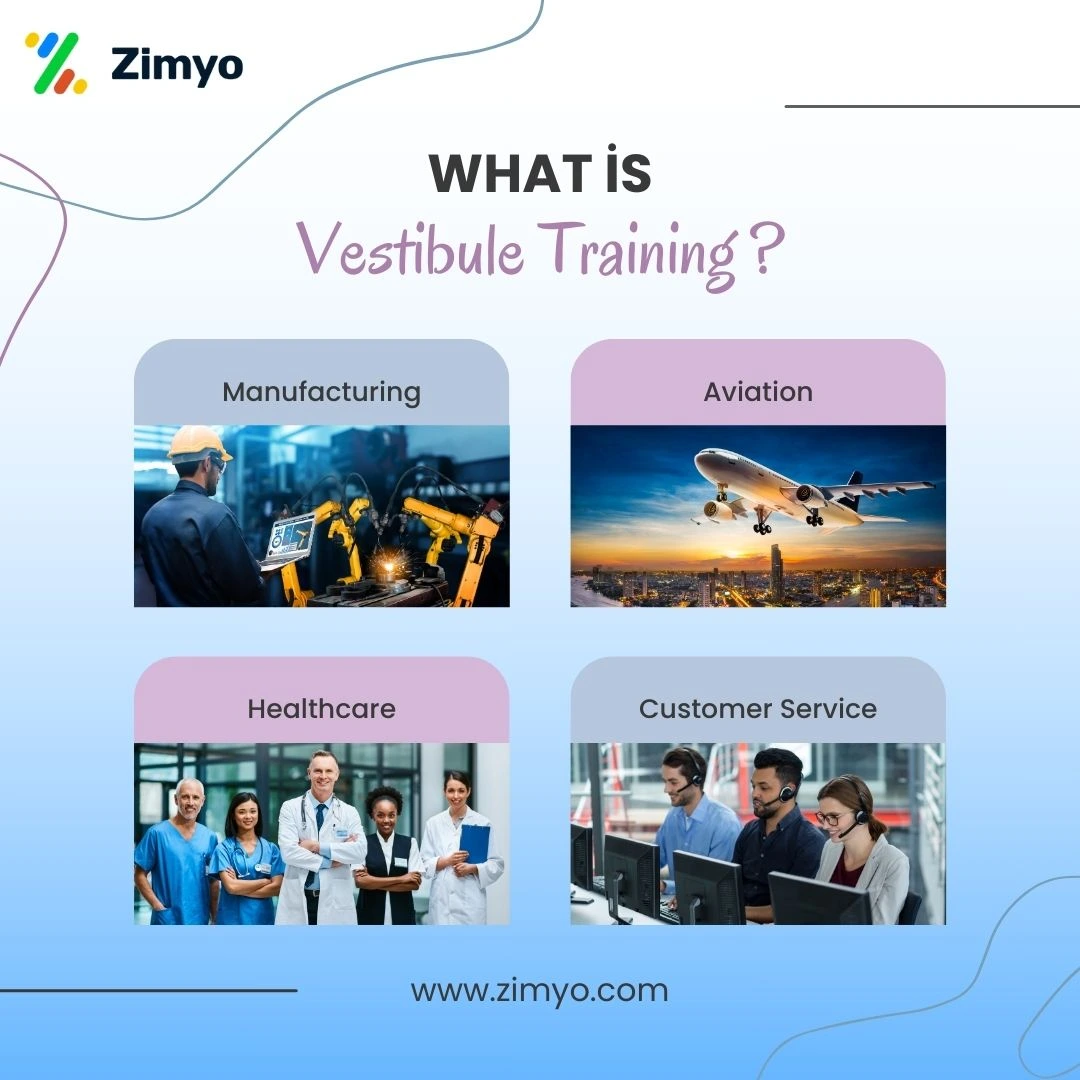Introduction
Have you ever thought how employees in high-risk industries learn their job skills before stepping into the real work environment? The answer lies in Vestibule Training in HRM.
This training method prepares employees for their roles by simulating real workplace conditions in a controlled, pressure-free setting. Vestibule is widely used in industries like manufacturing, aviation, healthcare, and customer service. But what exactly is Vestibule Training, and why is it so effective? Let’s understand!
What is Vestibule Training Meaning?
Vestibule Training is an off the job training where employees learn their job responsibilities in a simulated environment. This environment closely resembles their actual workplace. The training takes place in a separate area called a vestibule. Which is equipped with the same tools, machines, and equipment used on the job.
Unlike on the job training, Vestibule Training in HRM allows employees to gain practical experience without the pressures or risks of real tasks.
Definition of Vestibule Training in HRM
“Vestibule training is a form of off the job training method where employees are trained in an environment that simulates the actual workplace. This training method uses the same tools, machines, and equipment that employees will use in their real job roles, providing a focused and safe learning experience.”
Key Features of Vestibule Training
This Job Training Method stands out for its structured approach to skill development. Here are some key features:
1. Simulated Work Environment
- Training areas replicate real workplace settings.
- Employees use the same tools, machines, and equipment as they would in their actual job roles.
- It minimizes workplace disruptions and ensures smooth learning and problem solving.
2. Focused Learning
- Employees train in a distraction-free environment.
- The focus remains on skill mastery before transitioning to the actual workplace.
- It enhances confidence and performance.
3. Skilled Instructors
- Training is conducted by expert instructors imparting their skills and knowledge.
- Employees receive personalized feedback and guidance.
- Mistakes are corrected immediately, ensuring a strong learning curve.
4. Safety First
- Employees train in a risk-free environment.
- No real-world harm occurs if errors are made.
- Ideal for industries dealing with hazardous processes.
Examples/Case Studies

Vestibule Training is a commonly used type of training in industries where safety, precision, and efficiency are crucial. Here are some real-world examples:
- Manufacturing: Employees train on complex machinery in a mock production line setup.
- Aviation: Pilots and cabin crew practice procedures in simulated aircraft environments.
- Healthcare: Medical professionals learn to handle equipment and patient care techniques in a controlled setting.
- Customer Service: Employees simulate customer interactions before engaging with real customers.
Advantages of Vestibule Training
Investing in Vestibule Training in HRM brings multiple advantages for both employees and organizations. Let’s look at some key benefits:
- Higher Employee Competence: Employees become highly skilled before entering their actual work environment.
- Better Job Performance: Hands-on training ensures better job execution and productivity.
- Smoother Onboarding Process: New hires adapt quickly, reducing learning time.
- Adequate Preparation for High-Demand Roles: Employees are job-ready before assuming responsibilities.
- Reduced Workplace Accidents: Employees are well trained, leading to fewer errors and accidents.
I was able to implement the platform on my own. It helps in assigning the tasks to other employees, conducting surveys and polls, and much more. The ease of use and self-onboarding is something that I would like to appreciate.
Sonali, Kommunicate
Zimyo simplifies attendance management for our organization. The leave and attendance are so streamlined that we have never faced any difficulties with the system.
Anurag, Eggoz Nutrition
Why is Vestibule Training Important?
Companies like Zimyo emphasize the need for effective training methods like this to ensure employee readiness. Training in a controlled setting reduces work disruptions, ensures compliance, and boosts overall workforce efficiency.
Conclusion
Vestibule Training in HRM is a powerful tool for preparing employees for complex and demanding job roles. It ensures a smooth transition from training to actual work, enhances employee confidence, and improves job performance. Whether in aviation, healthcare, or manufacturing, businesses worldwide rely on Vestibule Training to build a skilled, competent workforce.
So, the next time you hear about an employee excelling in their job from day one, you’ll know that Vestibule Training played a crucial role!
Want to improve your company’s training programs? Implement Vestibule Training today and watch your workforce thrive!



